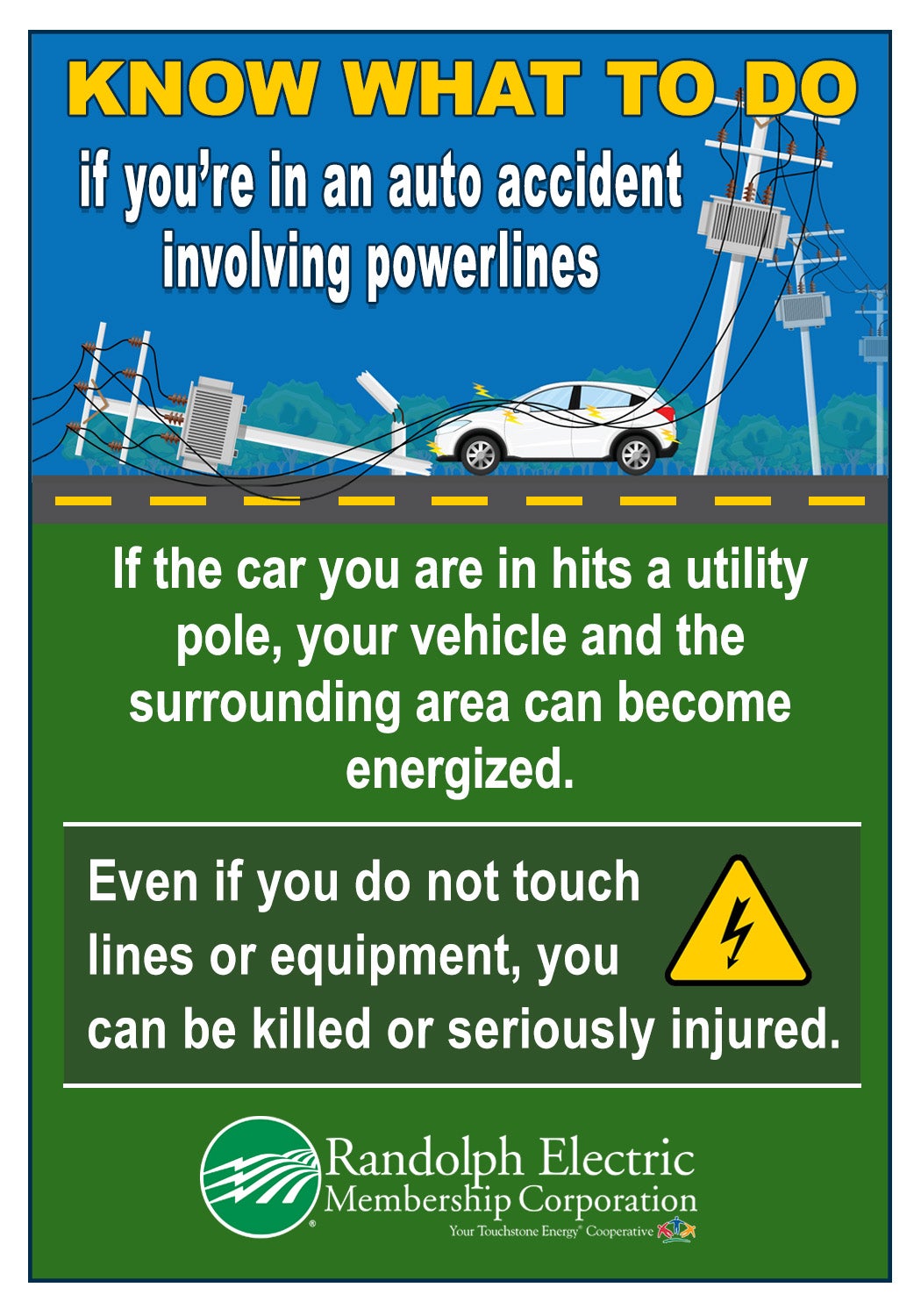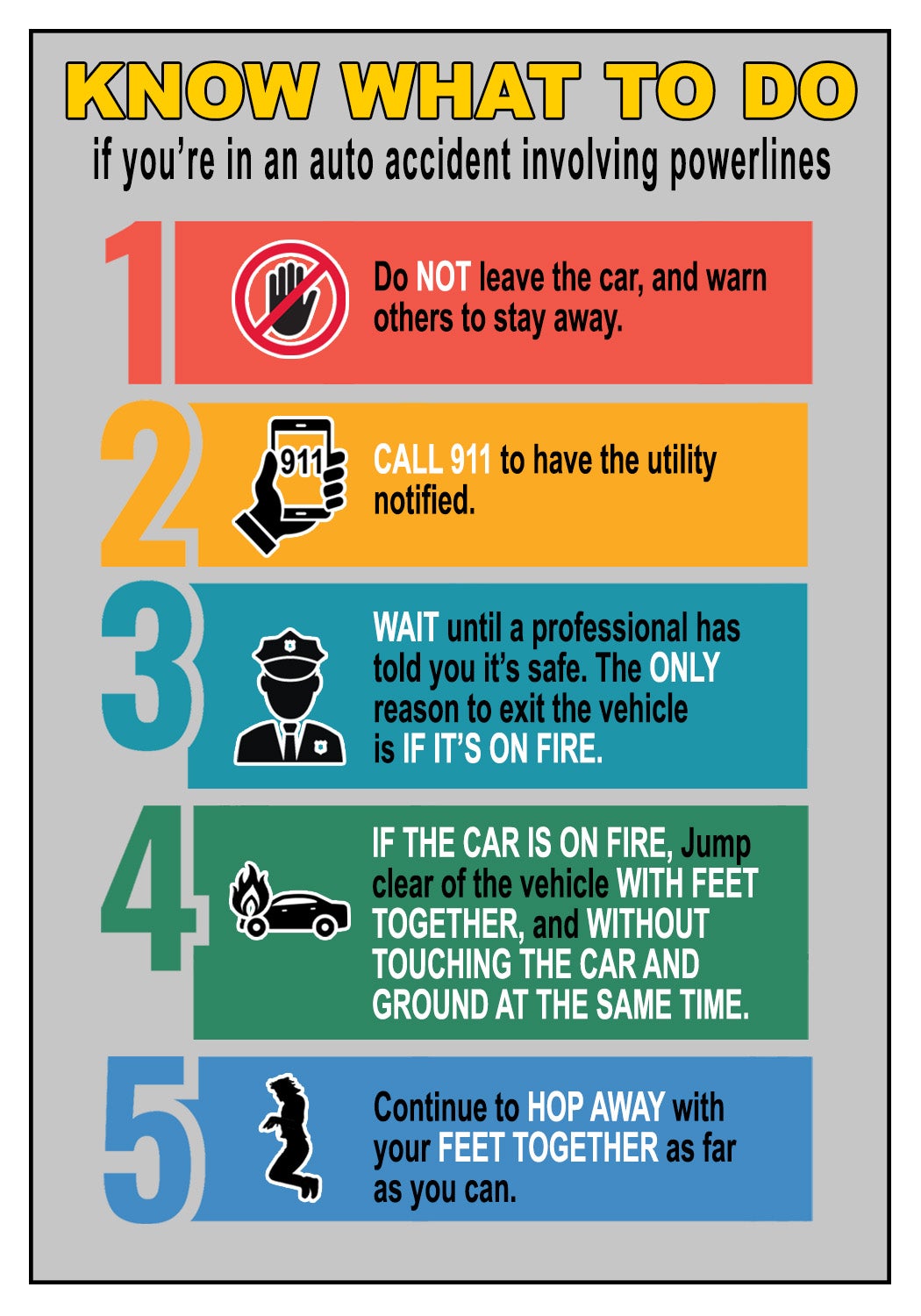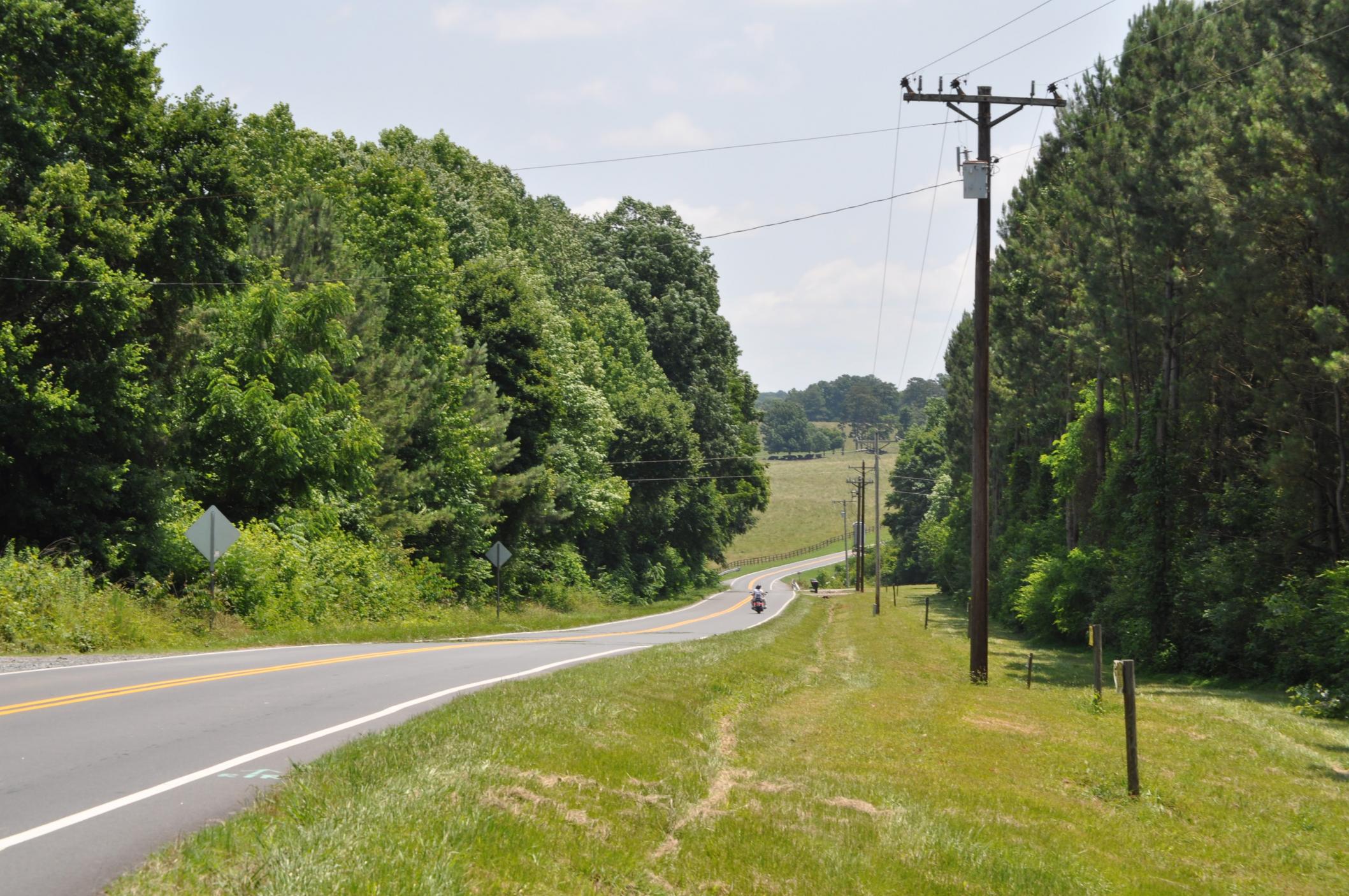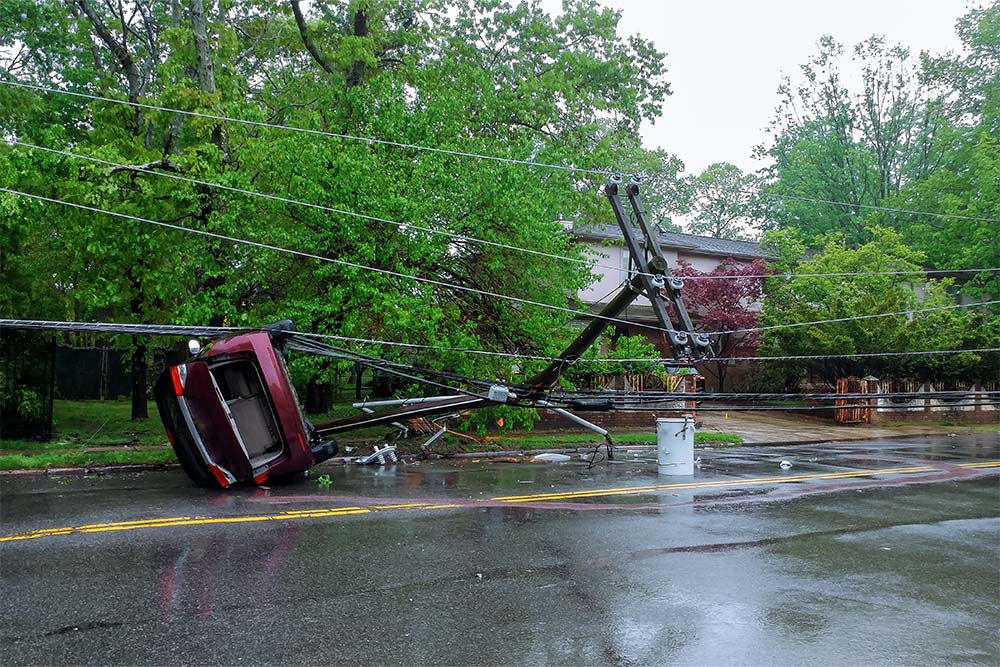Staying Safe Around Power Lines
Safety is Randolph EMC's top priority—for employees AND the general public. The presentations in this video are for demonstration purposes only.
Many of these scenarios are not normally seen by our linemen while working on the lines. This video is to help you understand how the utility’s electrical system operates and its related dangers. Please do not attempt to re-create any of the actions in these demonstrations on an actual utility electrical system.
Please remember to always stay well away from low-hanging or downed power lines, as they could still be energized. You should report these safety hazards to the local utility or 911 immediately.
Copyright Notice
This video is copyright protected. Unauthorized reproduction without prior written consent of Randolph Electric Membership Corporation is prohibited. © 2021 Randolph Electric Membership Corporation.
Know What To Do If You're In An Auto Accident Involving Powerlines
The sight of downed powerlines is not uncommon following severe weather events, but the potential consequences of colliding with these electrical structures are often underestimated. From electrocution to fire hazards and widespread power outages, the hazards posed by such accidents extend far beyond the immediate crash site. Understanding the complexities and risks associated with these incidents.


Additional Powerline Safety Information

Power Line Safety Tips
-
Always be aware of the location of power lines, particularly when using long tools like ladders, pool skimmers, and pruning poles. Be sure to lower your long equipment when you are moving it. Carry ladders and other long items horizontally whenever possible.
-
Be careful when working on or around your roof—installing rooftop antennas and satellite dishes, installing or cleaning gutters, or doing repair work. Never go up on the roof in windy or bad weather.
-
Be especially careful when working near power lines attached to your house. Keep equipment and yourself at least 10 feet from lines.
-
Never trim trees near power lines—leave that to the professionals. Never use water or blower extensions to clean gutters near electric lines. Contact a professional maintenance contractor.
-
Never climb trees near power lines. Even if the power lines are not touching the tree, they could come in contact when more weight is added to the branch.
-
Teach children to never play around pad-mounted transformers, solar panels, wind turbines, or electrical substations. If a ball or other toy goes over a substation fence, call your utility for help.
-
Never climb trees near power lines. A tree may be inviting climbers, but trees near power lines could be conductors of electricity if branches are touching the wires. Even if branches are not touching power lines, they could if weight from a child is added.
-
Open areas are great places to fly kites and model airplanes, but do not fly them near overhead power lines or electrical substations. A kite string can conduct electricity from an overhead power line to the person on the ground.
-
If electric wires in your neighborhood have sagged for some reason or a tree limb has pushed the line out of place, keep your neighborhood safe by alerting your electric utility.
For more information on electrical safety and to see more videos about power line safety, visit www.SafeElectricity.org.

What to Do in Vehicle Accidents That Involve Power Lines
Instincts can help us to avoid danger but in some situations, our natural inclinations can lead to tragic results. If your car hits a utility pole or otherwise brings a power line down, getting out of a vehicle, with few exceptions, is the wrong thing to do until the line has been de-energized. Know the right steps to take to save your life:
-
You are almost always better off to stay in the car, especially if the line is in contact with the vehicle
-
Call or signal for help. It is safe to use a cell phone.
-
Warn others who may be nearby to stay away, and wait until the electric utility arrives to make sure power to the line is cut off.
-
If the power line is still energized and you step outside, your body becomes the path to ground for that electricity, and electrocution is the tragic result. Wait until the electric utility arrives and shuts off the power.
-
The only exception would be if fire or other danger, like the smell of gasoline, is present. In that case, the proper action is to jump—not step—with both feet hitting the ground at the same time. Jump clear. Do not allow any part of your body to touch the vehicle and ground at the same time. Hop to safety, keeping both feet together as you leave the area. Like ripples in a pond or lake, the voltage diminishes the farther out it is from the source. Stepping from one voltage level to another allows the body to become a path for that electricity.
-
Even if a power line has landed on the ground, there is still the potential for the area near your car to be energized. Stay inside the vehicle unless there is fire or imminent risk of fire.
-
The same rules apply with situations involving farm equipment and construction equipment that comes in contact with overhead lines. Those working with large equipment should stay inside the vehicle if equipment extensions come in contact with power lines.

